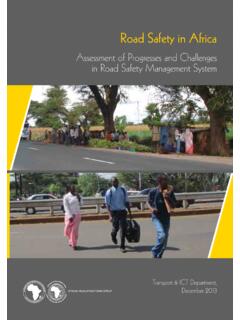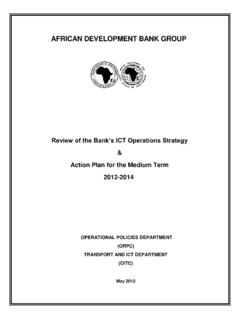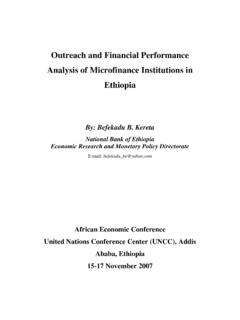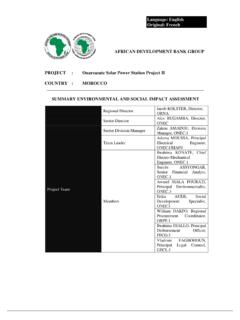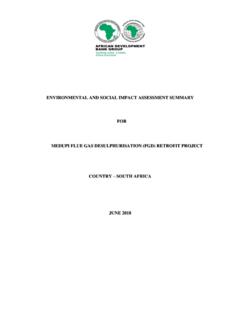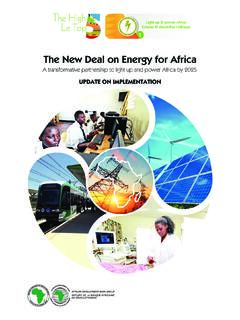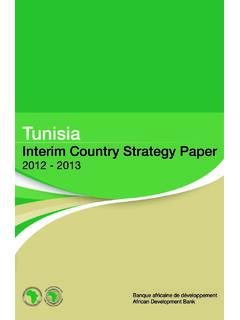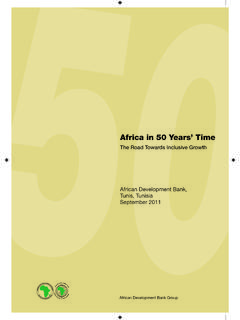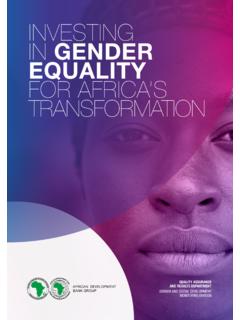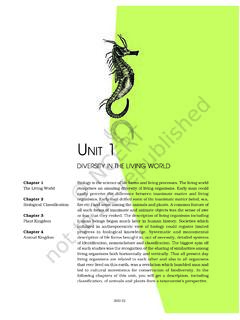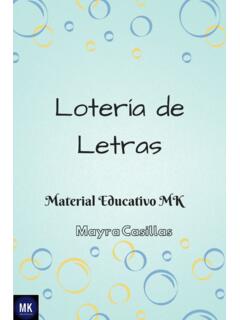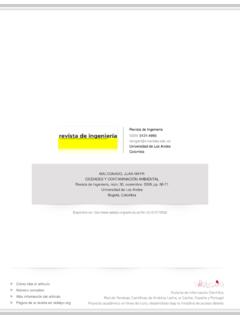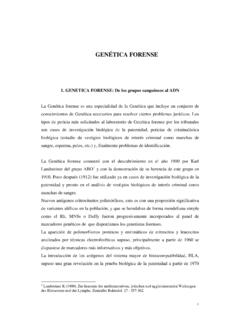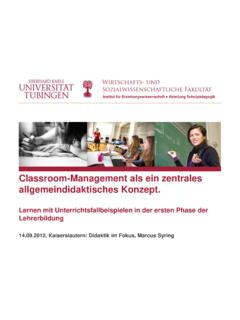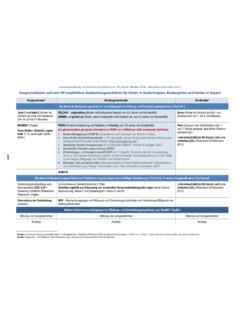Transcription of REQUEST FOR EXPRESSIONS OF INTEREST AFRICAN …
1 REQUEST FOR EXPRESSIONS OF INTEREST AFRICAN DEVELOPMENT BANK 01 1387 Abidjan 01 - C te d Ivoire Urban and Municipal Development Fund (UMDF), Infrastructure and Urban Development Department 1. The AFRICAN Development Bank hereby invites Consultants to indicate their INTEREST in the following Assignment: Development of City Diagnostics and Action Plans as part of the AfDB City Program, funded by the Urban and Municipal Development Fund (UMDF). 2. The services to be provided under the Assignment can be found in the Terms of Reference (Annex 1) 3. The AFRICAN Development Bank s Infrastructure and Urban Development Department (PICU) invites Consulting Firms to indicate their INTEREST in providing the services described in the ToR. Interested Consultants shall provide information on their qualifications and experience demonstrating their ability to undertake this Assignment (documents, reference to similar services, experience in similar assignments, etc.)
2 4. The eligibility criteria, the establishment of a short list and the selection procedure shall be in conformity with the Bank s Procurement Policy and Procedure for Corporate Consultants Recruitment. Consultants and consulting firms must comply with the minimizing conflicts of INTEREST considerations (Annex 1 to AfDB s Independent Evaluation Policy). Please, note that INTEREST expressed does not imply any obligation on the part of the Bank to shortlist. 5. The estimated duration of delivering the individual services is six (6) months and the estimated starting date is May 2022. Short-listed firms will be invited to submit financial Proposals for individual cities over a multi-year period. 6. Interested Firms may obtain further information at the address below during the Bank s working hours: Mon. to Fri. from 08h00-17h00 GMT, or via the E-Mail below. 7. EXPRESSIONS of INTEREST must be received at the address below no later than 8th of April 2022 at 18h00 UTC and specifically mentioning the subject: Development of City Diagnostics and Action Plans for the Urban and Municipal Development Fund (UMDF).
3 8. Expression of Interests are to be submitted to CC 9. Any questions or requests for clarifications may be sent to Marcus Mayr Interested consultants not registered in the Bank s consultancy database DACON, are kindly requested to do so via: (AfDB IT advises it is best to use Google Chrome) 10. A shortlist of consulting firms will be established based on the EXPRESSIONS of INTEREST . The firms on the shortlist will be judged on the following criteria Criteria Score General qualification and experience in the area of expertise 30 Similar experience with Urban Development Programs of MDBs or international institutions 30 Availability of skills within the personnel of the company during the period planned for the execution of the contract. 20 Experience working directly with cities and municipalities 20 Total 100 TERMS OF REFERENCE CONSULTING SERVICES FOR THE DEVELOPMENT OF CITY DIAGNOSTICS AND ACTION PLANS FOR THE URBAN AND MUNICIPAL DEVELOPMENT FUND (UMDF).
4 1. Background Urban and Municipal Development Fund (UMDF) Africa is urbanizing rapidly. The AFRICAN Development Bank recognizes that cities and towns are major drivers for socio-economic development. To underscore the importance of cities, in April 2019 the Bank launched its Urban and Municipal Development Fund (UMDF), a multi-donor trust fund providing technical assistance to support municipalities. The UMDF will support AFRICAN cities and municipalities to improve their resilience and better manage urban growth and development through planning, governance and quality of public services. The Fund is structured around four main pillars that will define the UMDF s mandate and work program: (a) improved urban planning, (b) improved project preparation ( , pre-investment), (c) improved governance and fiscal management, and (d) increased capacity to support integrated urban development. The UMDF is a vehicle to support achievement of the objectives of the AFDB Group in cities of the continents: inclusive growth and green growth and the High five development priorities meant to accelerate the Bank s long-term strategy, namely to Light up and Power Africa; Feed Africa; Industrialize Africa; Integrate Africa; and Improve the Quality of Life for the People of Africa.
5 Further, the AFRICAN Development Bank Group recently approved its Guidelines for Subnational Finance with the aim of increasing transactions with subnational entities. AfDB Cities Program A productive, liveable, resilient, and well-governed city is a sustainable city as it offers a good quality of life to its citizens, minimizes its impact on the environment, preserves its environmental and physical assets for future generations, and thereby promotes its competitiveness. It also has a local government with the fiscal and administrative capacity to carry out its urban functions with the active participation of its citizens. The AfDB Cities Program represents a new approach to urban development in Africa, dealing with the most urgent challenges of the city. It uses an integrated and interdisciplinary perspective, which is necessary for identifying the path to long-term sustainability.
6 The Cities Program is structured and delivered through five distinct phases Phase 1. Analysis and Diagnostic delivering a city s current state of affairs in regard to the three-dimension sustainability ( , environmental, urban, and fiscal). Phase 2. Prioritization delivering the critical interventions that will require execution to improve the cities sustainability. Phase 3. The Action Plan delivering the blueprint to execute the critical interventions and the potential funding sources to finance it. Phase 4. Pre-investment and project development of at least one critical intervention per city delivering the project preparation and readiness for completion. Phase 5. Development of an independent project implementation monitoring system to be managed by the cities stakeholders and reporting to AfDB project funders and other stakeholders, delivering accountability and results of the programme execution.
7 Each phase has its own deliverable and places the city and its stakeholders ( , society, government, private sector, and other participants) at the center as the clients and beneficiaries of the Cities Program s results. This REOI is specifically for firms to deliver the outputs in Phases 1-3. 2. Objective of the Assignment The objective of the assignment is to develop the City Diagnostics and Action Plans covering the first three stages of city engagement. It is foreseen that the firm, together with AfDB staff, engages local and national stakeholders, collects data for the computation of indicators, reviews existing documents, plans and strategies to develop an concise action plan for sustainable urban development with clear indication of needed investments. The Action Plans shall serve as the basis for further investment preparation. 3. Main activities and deliverables The assignment as outlined above can be further broken down into three main activity streams with indicative deliverables: (i) a city profile, (ii) a prioritization exercise, and (iii) a city action plan.
8 Part I: An assessment of the State of the City (assessment, indicators, data collection and analysis) At the start of Part 1, the consultant shall meet with the City Mayor, other key staff in the city and the AfDB Urban Development team to discuss the inception report and agree on key issues associated with the project. The involvement of stakeholders then needs to be broadened through a stakeholder workshop Workshop 1 which is intended to introduce the project to all key stakeholders and service providers and assess the availability of information from each stakeholder. Attendance needs to include private and public organizations providing services in the city, representatives of civil society, academia and representatives of business interests. The second component of Part 1 comprises a broad assessment of the state of the city which will provide an overview of baseline information, existing data and existing plans and strategies.
9 This overview should provide a evidence-based city profile. The City Program is using a defined set of indicators for identifying critical sectors and issues in cities. The analysis and diagnosis are based on the collection of the information in three analytical dimensions: (i) urban planning issues; (ii) environment and climate change; and (iii) fiscal management and governance issues. The list of indicators will be provided to firms. The data is to be obtained from all credible data sources, local authority plans and databases, as well as field research and interviews undertaken during city visits. The AfDB and the National Statistics Office will assist with data for the city economy and demographic indicators. The data needs to be backed up with the source and year, the methodology for obtaining the values or for the calculation (if required). Where, with the best effort, no data can be obtained for the city, some proxy may be used: national averages, for example, adjusted if necessary.
10 Any additional observations on the limitations or weaknesses of the value found must be recorded. The output from Part 1 should provide A) the current situation with regard to the three dimensions (urban planning, environment, fiscal management and governance) by their topic areas supported by the baseline information and metrics together with the analysis of the indicators and comparators and B) based on this, identify the key challenges and opportunities for future sustainability. Part II: Validation/Prioritization The baseline and challenges reports for each city must be reviewed and validated by both AfDB and the cities. The reports will be prepared in the National Language (English, French, Portuguese) and may be translated further. Validation AfDB Validation AfDB will review all reports and compare outcomes across the five cities and then hold meetings with each consultant to test and challenge their findings for each dimension for each city and to ensure consistency across the studies for the cities.
